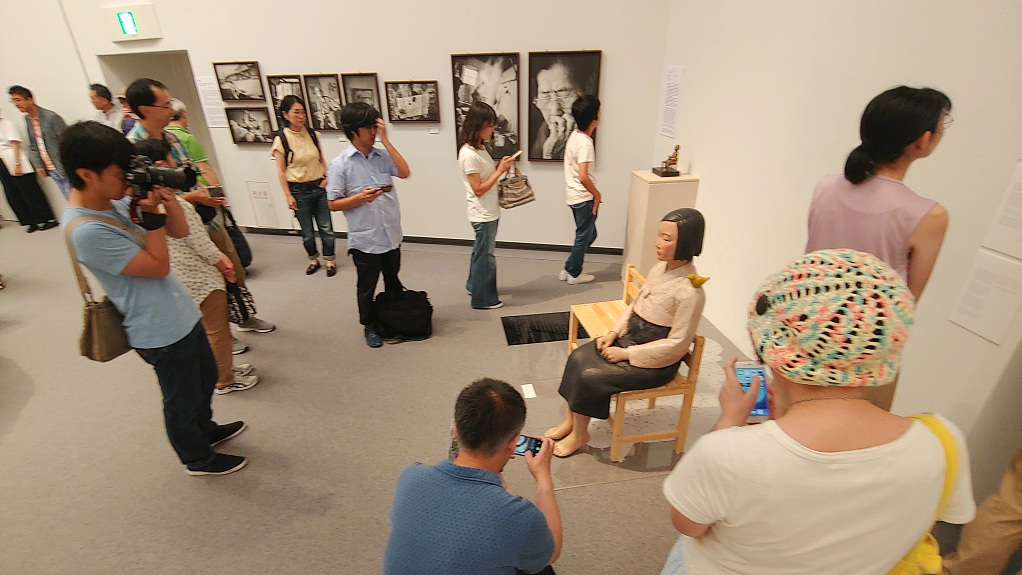
A statue of 'comfort women" in Japan. /VCG Photo
A statue of 'comfort women" in Japan. /VCG Photo
A local film festival in suburban Tokyo has come under fire for dropping a movie examining views on the highly controversial issue of sex slavery and Japan's wartime military brothels.
Organizers of the film festival in Kawasaki City said they had opted to drop the film after local officials raised concerns.
The controversy comes after an exhibit in central Japan was shut down for months earlier this year over the display of a statue of a sex slave, and with relations between Japan and South Korea badly frayed over war-time issues.
"Shusenjo: The Main Battleground of The Comfort Women Issue" is a documentary examining the debate over so-called "comfort women," who were forced to work in wartime Japanese military brothels during World War II.
Mainstream historians say up to 200,000 women – mostly from Korea, but also other parts of Asia including China – were forced to work in the brothels.
But some nationalists insist the women were prostitutes, claiming there is no documented evidence that the Japanese military was ordered to recruit women against their will.
The head of the festival organizers said he was "deeply ashamed of a decision that may result in pressure on freedom of expression" but cited concerns from local officials as well as worries about the "security" of volunteers staffing the festival.
Some of the people interviewed in the film, by Japanese-American director Miki Dezaki, have filed suits against him, claiming they were not aware the interviews would be used in a movie for public release.
Kawasaki City, which provided nearly half of the festival's budget, reportedly expressed concerns about the lawsuit in its conversations with organizers.
Local officials however denied pressuring organizers to drop the film. The film's distributor said the decision was shocking and called the organizer's explanations "insincere and irrational."
"If this decision stands, it would create a bad precedent for a film festival created by citizens to succumb to pressure from authorities," distributor Tofoo's president Shigeki Kinoshita said. A second film firm said it would withdraw two of its films from the festival in protest, criticizing organizers for "murdering freedom of expression."
An exhibition in central Japan was in August shut down for two months after it received threats for displaying a South Korean statue of a wartime sex slave.
The central government pulled funding for the exhibition, which eventually reopened for the final few days of its run.
Bilateral relations between Japan and South Korea have frayed in recent month over a long-running dispute on the use of forced labor during World War II, with the two sides taking actions.
(With input from AFP)